On behalf of the Nominations Committee, welcome to the 2019 ISHPSSB elections of officers. Below you will find the slate of candidates for all officer roles, followed by their biographies and photos. In accordance with the Society’s by-laws, we solicited nominations from the membership at large. Those nominated by two or more members, or by the Nominations Committee, and who have expressed their willingness to serve now comprise the slate. Our sincere thanks to all who have agreed to be nominated.
The elections will be conducted electronically using a Qualtrics survey: All members actively subscribed on the Day of Note will be able to vote, during the month the ballots remain open. At the start of the balloting period, each will receive an email sent by Qualtrics in the name of the acting President, Marsha Richmond; in that email is a unique link allowing that member to submit their votes (once), without needing their membership password. (Please do check your SPAM folder if you haven't received this email after the start of the elections!)
Nominees
President-elect
Council
Secretary
Treasurer
Program Co-Chairs
Nominee biographies
For President-elect:
Rachel Ankeny
 Rachel Ankeny is Professor of History and Philosophy and Deputy Dean Research in the Faculty of Arts at the University of Adelaide, Australia, and Honorary Visiting Professor in Philosophy at the College of Social Science and International Studies at the University of Exeter, UK. She is a prolific scholar in several fields, including history and philosophy of contemporary biological and biomedical sciences and public understanding and engagement in science.
Rachel Ankeny is Professor of History and Philosophy and Deputy Dean Research in the Faculty of Arts at the University of Adelaide, Australia, and Honorary Visiting Professor in Philosophy at the College of Social Science and International Studies at the University of Exeter, UK. She is a prolific scholar in several fields, including history and philosophy of contemporary biological and biomedical sciences and public understanding and engagement in science.
She also is well-recognised as a scholar who can translate academic findings in ways that are relevant for stakeholders in a range of sectors and the broader community, and is actively involved in Australian policymaking.
She has been an active member of ISHSSPB for over 20 years, previously serving on Council (2013—17) and as Secretary (2017—19), chairing the student essay prize committees (2014—17), and providing support for the 2009 ISHSSPB meeting in Brisbane.
She is a co-founder of the Society for Philosophy of Science in Practice and has actively served in a range of other international organisations in HPS as well as chairing the National Committee for HPS for the Australian Academy of Science. She currently is editor of Studies in History and Philosophy of the Biological and Biomedical Sciences (Studies C).
Matt Haber
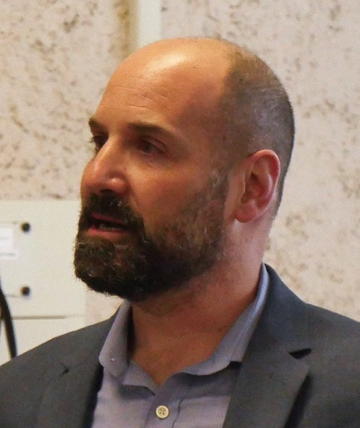 I am a philosopher of biology at the University of Utah. My research focuses primarily on issues in phylogenetic systematics. Most recently that means genealogical discordance, and how a growing appreciation for the breadth and scope of this is impacting both how we do phylogenetics and what we think of as the units of divergence and diversification. Most exciting, for me, is the way this area of biology is growing increasingly multidisciplinary. I think it embodies a big part of what ISHPSSB aims to promote: the value of collaborative efforts between biologists, philosophers, historians, and social scientists.
I am a philosopher of biology at the University of Utah. My research focuses primarily on issues in phylogenetic systematics. Most recently that means genealogical discordance, and how a growing appreciation for the breadth and scope of this is impacting both how we do phylogenetics and what we think of as the units of divergence and diversification. Most exciting, for me, is the way this area of biology is growing increasingly multidisciplinary. I think it embodies a big part of what ISHPSSB aims to promote: the value of collaborative efforts between biologists, philosophers, historians, and social scientists.
ISHPSSB has been a formative group in my development as a scholar, and has made a profound and lasting impact on how I approach just about every aspect of being an academic. My research is better for the collaborative and interdisciplinary sessions I've participated in and attended; my teaching is better for the advice and creative approaches I've learned from other society members; and my approach to service has been deeply influenced by the mentors I've watched serve ISHPSSB. In addition to valuing the core commitment to interdisciplinary approaches to studying biology, the intentional goal of not merely including junior scholars, but seeking to help them flourish and succeed has been one of my favorite things about ISHPSSB. For me personally, this meant helping to organize the very first off-year ISHPSSB workshop (along with other then-grad students from across several institutions). In every conference and workshop that I've since organized, I have also prioritized inclusion, striving to include researchers from different academic backgrounds and career stages that will provide a diverse set of perspectives to explore the topics at hand. Promoting and maintaining these values are the primary reasons why I am excited for the opportunity to give back to ISHPSSB by serving as its president.
Thomas Pradeu
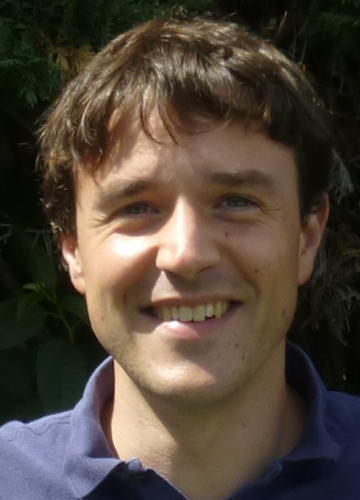 Born in 1978, I am a Senior Investigator in Philosophy of Science at the CNRS and the University of Bordeaux (France), in the main immunology lab. I am the PI of the conceptual biology group there and of an ERC-funded project. I am also an Associated member of the Institute for the History and Philosophy of Science and Techniques (IHPST) in Paris (CNRS & Pantheon-Sorbonne University). After one year at Harvard University as a Visiting Fellow (2003—2004) and a PhD (2004—2007) under the supervision of Jean Gayon at Pantheon-Sorbonne University, I was, from 2008 to 2014, Associate Professor in the Philosophy Department of Paris-Sorbonne University.
Born in 1978, I am a Senior Investigator in Philosophy of Science at the CNRS and the University of Bordeaux (France), in the main immunology lab. I am the PI of the conceptual biology group there and of an ERC-funded project. I am also an Associated member of the Institute for the History and Philosophy of Science and Techniques (IHPST) in Paris (CNRS & Pantheon-Sorbonne University). After one year at Harvard University as a Visiting Fellow (2003—2004) and a PhD (2004—2007) under the supervision of Jean Gayon at Pantheon-Sorbonne University, I was, from 2008 to 2014, Associate Professor in the Philosophy Department of Paris-Sorbonne University.
My research interests span from biological individuality, the history and philosophy of immunology, microbiome studies, virology, cancer biology, developmental biology, physiology, as well as metaphysics of science (https://www.immuconcept.org/conceptual-immunology/). My book The Limits of the Self: Immunology and Biological Identity (Oxford Univ. Press, 2012) received the Lakatos Award. The main objective of my work is to promote strong and productive collaborations between philosophers and scientists – what I call philosophy “in” science. My own research has appeared in leading journals of philosophy (e.g., Synthese, Studies C), science (e.g., PNAS, eLife), and medicine (e.g., The Lancet). I am Associate editor of the journal Biology & Philosophy, president of the Nomination Committee at the European Philosophy of Science Association (EPSA), vice-president of the French Société de Philosophie des Sciences, and coordinator of the International Network for Philosophy in Biology and Medicine (PhilInBioMed).
My first contact with ISH was in 2005 at the Guelph meeting. I found in this society exactly the kind of strong connections between philosophy, history, and science that I was looking for. ISH has been very important for me, and I have tried to be a strong supporter of ISH ever since. Together with Michel Morange, I co-chaired the Program committee of the Montpellier meeting in 2013. I was a member of the ISH Site Selection Committee for several years, and I am now a member of the David Hull Prize Committee.
If I am elected president of ISH, my priorities will be: 1) to strengthen interactions between ISH and scientists; 2) to promote not only the coexistence but also a real dialogue between historical and philosophical approaches to the biological sciences; 3) contribute to increase the representation of the social sciences, including anthropology, economics, and sociology, within ISH; 4) facilitate interactions between ISH and the domains of philosophy of medicine that are the most clearly connected with biological aspects
For Council (select up to three):
André Ariew
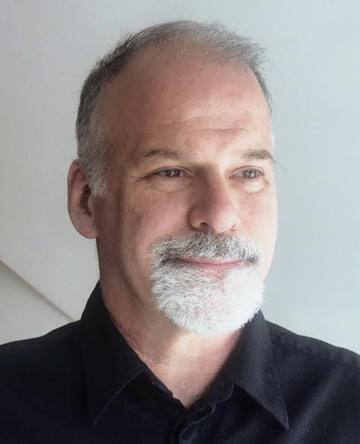 I am an Associate Professor of Philosophy at the University of Missouri interested, primarily, in the history and philosophy of evolutionary biology. I am co-organizer of the Evolution and Social Science Group at the University of Missouri: ess.missouri.edu. I have written papers on a range of philosophical topics, including, teleology, innateness, and the nature of evolutionary theory. I am currently finishing a book manuscript, Charles Darwin: the Reluctant Statistician.
I am an Associate Professor of Philosophy at the University of Missouri interested, primarily, in the history and philosophy of evolutionary biology. I am co-organizer of the Evolution and Social Science Group at the University of Missouri: ess.missouri.edu. I have written papers on a range of philosophical topics, including, teleology, innateness, and the nature of evolutionary theory. I am currently finishing a book manuscript, Charles Darwin: the Reluctant Statistician.
I received my PhD at the University of Arizona in 1997. Before coming to Missouri in 2006 I was an Assistant Professor at the University of Rhode Island. I have held Visiting and Associate positions at: the Department of Philosophy at University of Wisconsin, Museum of Comparative Zoology at Harvard, and the Department of History and Philosophy of Science at Cambridge University. Beginning July 2019 I will be a Visiting Scholar at the Institute of the History and Philosophy of Science and Technology in Paris working on, among other things, a paper on Darwin’s botanical arithmetic that I began with Jean Gayon before his untimely death in 2018.
The first ISHPSSB meeting I attended was in Seattle in 1997. When I was growing up my father used to tease me by telling me my real name is not “André” but “Ish Kabibble”, in reference to the comedian who used to play the silly person. If I am elected to the ISHPSSB’s executive committee then my old nickname will take on a new meaning.
Jan Baedke
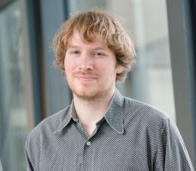 Jan Baedke is assistant professor at the Department of Philosophy I, Ruhr University Bochum. His research is characterized by an integrated and strongly interdisciplinary approach to the history and philosophy of the life sciences, with a special interest in evolutionary biology and epigenetics. He also works on anthropological challenges in the biosciences. He has published in international journals such as Journal of the History of Biology and Studies in History and Philosophy of Biological and Biomedical Sciences. His recent book is called ‘Above the Gene, Beyond Biology: Toward a Philosophy of Epigenetics’ (University of Pittsburgh Press, 2018).
Jan Baedke is assistant professor at the Department of Philosophy I, Ruhr University Bochum. His research is characterized by an integrated and strongly interdisciplinary approach to the history and philosophy of the life sciences, with a special interest in evolutionary biology and epigenetics. He also works on anthropological challenges in the biosciences. He has published in international journals such as Journal of the History of Biology and Studies in History and Philosophy of Biological and Biomedical Sciences. His recent book is called ‘Above the Gene, Beyond Biology: Toward a Philosophy of Epigenetics’ (University of Pittsburgh Press, 2018).
Jenny Bangham
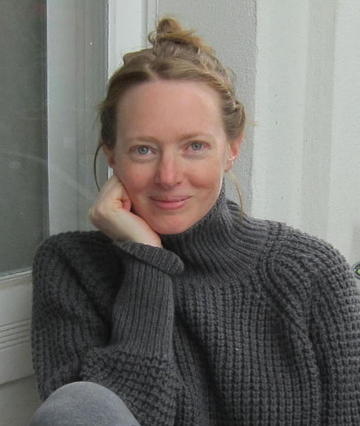 Jenny Bangham is a Wellcome Medical Humanities Research Fellow in the Department of History and Philosophy of Science, University of Cambridge. Her current project is about the history of a genetic database (‘FlyBase’), and explores how scientific communities come together to produce community resources, such as databases, newsletters, stock centres and journals. Her book Blood Relations: Transfusion and the Making of Human Genetics is under contract with University of Chicago Press. From 2020 she will be in the School of History at Queen Mary University, London. Supported by a Wellcome University Award, she will be starting a project on the history of genetic counselling in the UK and Ireland, which will chart changing communication practices in genetic medicine from the 1940s to the present. Between 2012 and 2016 Jenny was a postdoc at the Max Planck Institute for the History of Science in Berlin. Before turning to the history of science, she worked as a biologist at University College London and the University of Edinburgh, and as a journal editor at the Company of Biologists and Nature Publishing Group.
Jenny Bangham is a Wellcome Medical Humanities Research Fellow in the Department of History and Philosophy of Science, University of Cambridge. Her current project is about the history of a genetic database (‘FlyBase’), and explores how scientific communities come together to produce community resources, such as databases, newsletters, stock centres and journals. Her book Blood Relations: Transfusion and the Making of Human Genetics is under contract with University of Chicago Press. From 2020 she will be in the School of History at Queen Mary University, London. Supported by a Wellcome University Award, she will be starting a project on the history of genetic counselling in the UK and Ireland, which will chart changing communication practices in genetic medicine from the 1940s to the present. Between 2012 and 2016 Jenny was a postdoc at the Max Planck Institute for the History of Science in Berlin. Before turning to the history of science, she worked as a biologist at University College London and the University of Edinburgh, and as a journal editor at the Company of Biologists and Nature Publishing Group.
Vivette Garcia-Deister
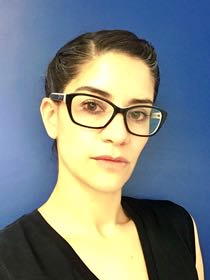 Vivette García-Deister is Associate Professor at the National Autonomous University of Mexico, where she is co-responsible for the STS laboratory at the School of Sciences. Her research focuses on the history of race science, the epistemologies of biomedical and forensic genetics in Mexico, and the philosophy of science in practice, as informed by ethnographic methods and critical anthropology of science. She studies the impact of biomedical and forensic genetics on issues of health, racism and justice.
Vivette García-Deister is Associate Professor at the National Autonomous University of Mexico, where she is co-responsible for the STS laboratory at the School of Sciences. Her research focuses on the history of race science, the epistemologies of biomedical and forensic genetics in Mexico, and the philosophy of science in practice, as informed by ethnographic methods and critical anthropology of science. She studies the impact of biomedical and forensic genetics on issues of health, racism and justice.
Joeri Witteveen
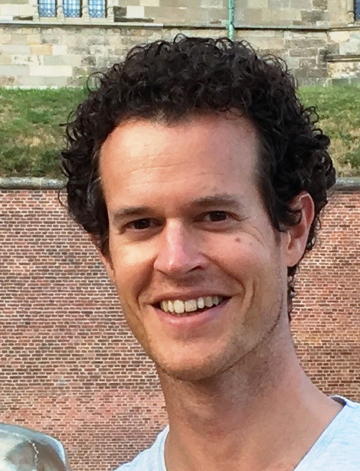 Joeri Witteveen is an Assistant Professor of History and Philosophy of Science at the University of Copenhagen in Denmark. He holds a master’s degree in Philosophy of the Social Sciences from the London School of Economics and a PhD in History and Philosophy of Science from the University of Cambridge. Before coming to Copenhagen he was a post-doc at Utrecht University. He has also has been a visitor at the Konrad Lorenz Institute, Australian National University, Eindhoven University of Technology, Egenis, the New York Botanical Garden, and the Museum für Naturkunde.His research covers several topics at interface of the history and philosophy of biology, mainly in evolutionary theory and systematics. He is currently carrying out a research project on the history and philosophy of naming practices in biological taxonomy. Joeri is an Associate Editor of Acta Biotheoretica and serves on the Editorial Board of Studies in the History and Philosophy of the Biological and Biomedical Sciences. He vividly remembers giving his first ever conference talk at the ISHPSSB meeting in Brisbane in 2009, where he was delighted to meet a group of scholars that encourage newcomers to the field. Since then, he has only had to skip the meeting in Salt Lake City. Having previously served on the Society's Program Committee and Education Committee, he looks forward to serving on the Council to cultivate the Society’s supportive and inclusive environment and to maintain its diversity in (inter)disciplinary approaches.
Joeri Witteveen is an Assistant Professor of History and Philosophy of Science at the University of Copenhagen in Denmark. He holds a master’s degree in Philosophy of the Social Sciences from the London School of Economics and a PhD in History and Philosophy of Science from the University of Cambridge. Before coming to Copenhagen he was a post-doc at Utrecht University. He has also has been a visitor at the Konrad Lorenz Institute, Australian National University, Eindhoven University of Technology, Egenis, the New York Botanical Garden, and the Museum für Naturkunde.His research covers several topics at interface of the history and philosophy of biology, mainly in evolutionary theory and systematics. He is currently carrying out a research project on the history and philosophy of naming practices in biological taxonomy. Joeri is an Associate Editor of Acta Biotheoretica and serves on the Editorial Board of Studies in the History and Philosophy of the Biological and Biomedical Sciences. He vividly remembers giving his first ever conference talk at the ISHPSSB meeting in Brisbane in 2009, where he was delighted to meet a group of scholars that encourage newcomers to the field. Since then, he has only had to skip the meeting in Salt Lake City. Having previously served on the Society's Program Committee and Education Committee, he looks forward to serving on the Council to cultivate the Society’s supportive and inclusive environment and to maintain its diversity in (inter)disciplinary approaches.
For Secretary:
Brian McLoone
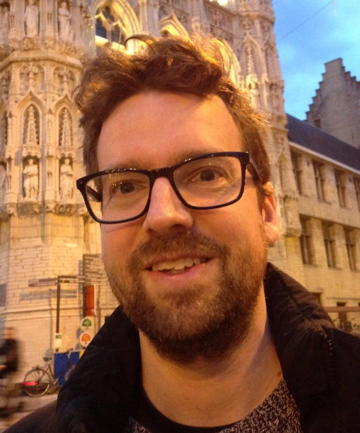 My name is Brian McLoone, and I'd like to be secretary for the ISHPSSB for the 2019-2021 term. I'm currently an assistant professor in the School of Philosophy at the Higher School of Economics (HSE), in Moscow, Russia. I'm enthusiastic about this position because I'm enthusiastic about ISH: I am unaware of any professional society in academia that can match ISH's size, intellectual breadth, and bonhomie. Were I to be elected, my goal would be to sustain those parts of ISH that work well, and to identify and improve those parts of ISH that need work.
My name is Brian McLoone, and I'd like to be secretary for the ISHPSSB for the 2019-2021 term. I'm currently an assistant professor in the School of Philosophy at the Higher School of Economics (HSE), in Moscow, Russia. I'm enthusiastic about this position because I'm enthusiastic about ISH: I am unaware of any professional society in academia that can match ISH's size, intellectual breadth, and bonhomie. Were I to be elected, my goal would be to sustain those parts of ISH that work well, and to identify and improve those parts of ISH that need work.
I have previous organizational experience as the “shop steward” (i.e., union representative) for philosophers in the teaching assistants' union at the University of Wisconsin–Madison (USA). Currently, at HSE, I'm a co-organizer for our international speaker series, and I serve on a steering committee for a new MA program in cognitive science as well as a committee for nation-wide curriculum reform. As secretary for ISH,
I'd be committed to high organizational standards, accurate and timely dissemination of information to ISH's membership, and to soliciting and responding to suggestions about how ISH should evolve and adapt.
Sarah Roe
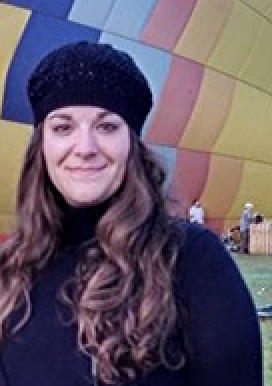 Sarah Roe is Assistant Professor at Southern Connecticut State University. She received her PhD from the University of California, Davis under the support and supervision of Professor Roberta Millstein. Sarah is an active council member for the American Association for the Advancement of Science-Pacific Division, where she serves as chair for History and Philosophy of Science. She also serves as the junior co-chair to the Philosophy of Science Women’s Caucus and is the Director of the Research Center on Values in Emerging Science and Technology. Sarah’s research interests include philosophy of medicine, philosophy of biology, and science and values. Much of her current academic research, in some way, emphasizes or focuses on minority and at-risk populations. Sarah is the proud recipient of the J. Philip Smith Award for Outstanding Teaching.
Sarah Roe is Assistant Professor at Southern Connecticut State University. She received her PhD from the University of California, Davis under the support and supervision of Professor Roberta Millstein. Sarah is an active council member for the American Association for the Advancement of Science-Pacific Division, where she serves as chair for History and Philosophy of Science. She also serves as the junior co-chair to the Philosophy of Science Women’s Caucus and is the Director of the Research Center on Values in Emerging Science and Technology. Sarah’s research interests include philosophy of medicine, philosophy of biology, and science and values. Much of her current academic research, in some way, emphasizes or focuses on minority and at-risk populations. Sarah is the proud recipient of the J. Philip Smith Award for Outstanding Teaching.
For Treasurer:
Laura Perini
 Laura Perini is an Associate Professor of Philosophy at Pomona College. She is currently the Treasurer for ISHPSSB. Her research is focused on the variety of graphic representations that scientists use to communicate: diagrams, graphs, photographs, drawings, and images made from techniques like MRI (magnetic resonance imaging.) She is interested in understanding how these different kinds of graphic representations are involved in scientific reasoning, in education, and in public communication.
Laura Perini is an Associate Professor of Philosophy at Pomona College. She is currently the Treasurer for ISHPSSB. Her research is focused on the variety of graphic representations that scientists use to communicate: diagrams, graphs, photographs, drawings, and images made from techniques like MRI (magnetic resonance imaging.) She is interested in understanding how these different kinds of graphic representations are involved in scientific reasoning, in education, and in public communication.
For Program Co-chairs:
Luis Campos
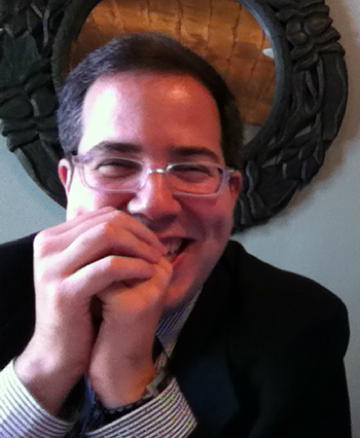 Luis A. Campos is Associate Chair and Associate Professor of the History of Science at the University of New Mexico. Trained in both biology and in the history of science at Harvard University, Campos seeks to bring together archival discoveries with contemporary fieldwork at the intersection of biology and society.
Luis A. Campos is Associate Chair and Associate Professor of the History of Science at the University of New Mexico. Trained in both biology and in the history of science at Harvard University, Campos seeks to bring together archival discoveries with contemporary fieldwork at the intersection of biology and society.
He has written widely on the history of genetics and synthetic biology, and is the author of Radium and the Secret of Life (University of Chicago Press, 2015) and co-editor of Making Mutations: Objects, Practices, Contexts (Max Planck Institute for the History of Science, 2010). Campos is an associate editor of the Journal of the History of Biology, and serves as Secretary of the History of Science Society. In 2017, he held the Baruch S. Blumberg/NASA Chair of Astrobiology at the Library of Congress.
and
Roberta Millstein
 Roberta Millstein is a Professor in Philosophy at the University of California, Davis. She specializes in history and philosophy of evolution and ecology as well as environmental ethics. Recent areas of research include Aldo Leopold's land ethic and the concepts of population and race; she is also co-authoring a book on the history and philosophy of random genetic drift with Michael Dietrich and Robert Skipper.
Roberta Millstein is a Professor in Philosophy at the University of California, Davis. She specializes in history and philosophy of evolution and ecology as well as environmental ethics. Recent areas of research include Aldo Leopold's land ethic and the concepts of population and race; she is also co-authoring a book on the history and philosophy of random genetic drift with Michael Dietrich and Robert Skipper.
She has been a member of Ishkabibble since 1994 and is proud to have served the Society in a number of capacities, including Webmaster from 2003—2005, Listserv Moderator from 2001 to 2011, Secretary from 2007 to 2011, and member of Council from 2015—2019 (in addition to assorted committees. She is currently on the Executive Committee and Council, and co-chair of the HPS Section, for the Pacific Division of the American Association for the Advancement of Science (AAAS). She is also a Co-Editor of the online peer-reviewed open-access journal, Philosophy, Theory, and Practice in Biology.
